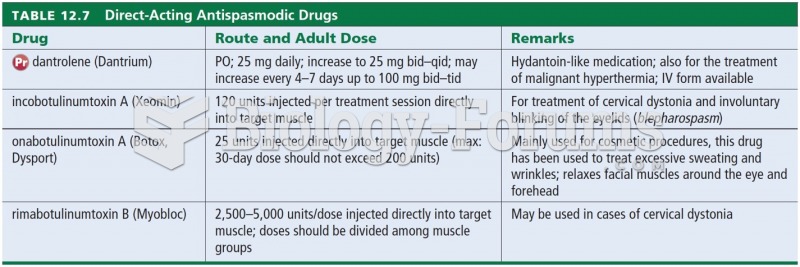|
|
|
Did you know?
Nitroglycerin is used to alleviate various heart-related conditions, and it is also the chief component of dynamite (but mixed in a solid clay base to stabilize it).
Did you know?
After a vasectomy, it takes about 12 ejaculations to clear out sperm that were already beyond the blocked area.
Did you know?
Only 12 hours after an egg cell is fertilized by a sperm cell, the egg cell starts to divide. As it continues to divide, it moves along the fallopian tube toward the uterus at about 1 inch per day.
Did you know?
The human body produces and destroys 15 million blood cells every second.
Did you know?
Eating carrots will improve your eyesight. Carrots are high in vitamin A (retinol), which is essential for good vision. It can also be found in milk, cheese, egg yolks, and liver.
 When working with the patient with impaired hearing, the interpreter needs to direct questions to th
When working with the patient with impaired hearing, the interpreter needs to direct questions to th
 (a) Mechanisms of action for direct cholinergic agonists. Direct cholinergic agonists can act by two ...
(a) Mechanisms of action for direct cholinergic agonists. Direct cholinergic agonists can act by two ...





